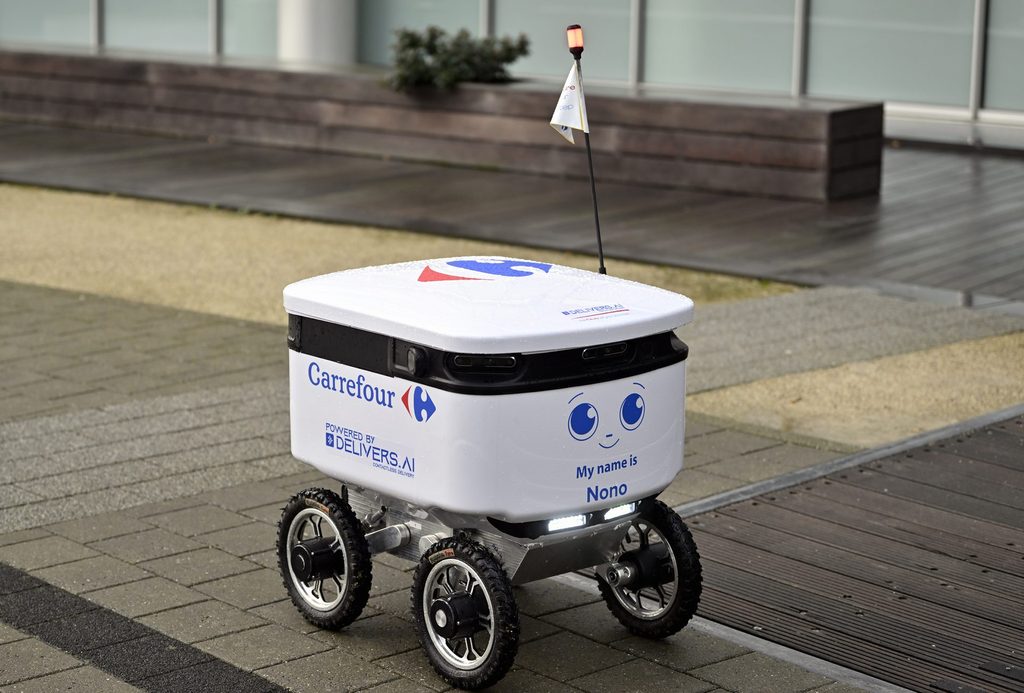Automated delivery services are gaining momentum in Europe as companies explore the potential of autonomous vehicles to transport goods and meals directly to customers' doorsteps. While the United States has witnessed numerous experiments with autonomous delivery in recent years, Europe is now accelerating its efforts in this field.
While automated delivery services and autonomous vehicles offer advantages in terms of efficiency, cost savings, safety, scalability, and environmental benefits, they also face challenges related to technology, regulations, jobs, security, and public acceptance.
The concept of autonomous delivery gained traction during the pandemic when contactless delivery became essential. Notably, in the United States, Amazon made its foray into autonomous delivery in 2019 with the Scout robot. However, the experiment came to a halt due to feedback indicating that certain aspects of the programme did not meet customer needs. Amazon then began experimenting with drones in its Prime Air programme, an initiative that it continues to pursue.
While Amazon Belgium were not able to provide any information regarding plans for automated deliveries here and elsewhere in Europe, its spokesperson did explain to The Brussels Times that new innovations were underway in the development of its drones.
“Amazon is introducing the MK30, a new delivery drone that enhances drone delivery capabilities,” the spokesperson said. “The MK30 offers extended range, improved temperature tolerance, and the ability to fly in light rain, making it more convenient for customers.”
“Scheduled for operation in 2024, the MK30 will replace the MK27-2 and be lighter, smaller, and equipped with improved features. Our hope is that the MK30 will encourage customers to choose drone delivery more frequently. Drones provide the most efficient path to delivering items under an hour and maintaining sustainability," they continued.
Autonomous food deliveries
Other companies, however, are exploring the possibilities of rolling out autonomous delivery services across Europe.
Starship Technologies, headquartered in San Francisco with development offices in Estonia, Finland, and the United Kingdom, is a major player in this domain, having completed over four million autonomous deliveries. Now, Europeans are set to experience these advanced delivery services as Starship Technologies partners with urban mobility company Bolt.
Bolt, with a presence in 45 countries and 500 cities worldwide, aims to diversify its activities by investing in the food delivery sector through Bolt Food. By offering fully autonomous delivery services, Bolt hopes to gain an advantage in a highly competitive market. The company has recently announced the launch of pilot programs for delivering orders using their fleet of small smart cars. Tallinn, the capital of Estonia, serves as the testing ground for this innovative initiative.
However, Bolt is not the sole player in the autonomous delivery landscape. Earlier this year, the retail giant Carrefour experimented with grocery delivery in Brussels using the compact vehicles of British company Delivers.Ai. Carrefour proudly claimed to be the first in Europe to trial this delivery method and plans to expand its implementation based on positive feedback, although the company refused to elaborate on its plans when contacted by The Brussels Times.
As Europe embraces the advancements in automated delivery, consumers can look forward to a future where their groceries and meals are effortlessly brought to their doorsteps by intelligent and autonomous vehicles. With various companies and technologies vying for dominance in this space, the competition is set to drive innovation, ensuring improved convenience and efficiency for customers across the continent.
Domino's jet pack at Glastonbury
While not an autonomous delivery service, could jet packs be part of that innovation? At this year's Glastonbury festival in the UK, Domino's recently accomplished an extraordinary feat by delivering a pizza to a festival goer on site via jet pack.
"Every year, we receive numerous unusual requests from festival-goers attempting to bring pizza into the party,” explained Sam Wilson, Domino's assistant PR manager, to the Independent newspaper. “So, this year, we wanted to experiment to ensure that hungry campers could experience sky-high satisfaction in the future."
While the delivery was an "unusual use" of their suits, according to a spokesperson from Gravity Industries, the jetpack firm responsible for the technology, they believe pizza-by-jetpack could represent the future of efficient delivery.
Nevertheless, considering that Gravity Industries' suits are priced at around half a million euros and can only carry two pizzas at a time, it remains uncertain whether Domino's could realistically adopt this delivery method on a large scale anytime soon.
Amazon Belgium’s spokesperson confirmed to The Brussels Times that the company has no plans to use jet packs for deliveries in the future.

